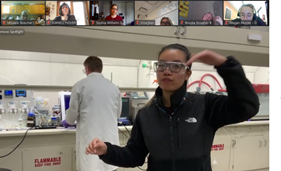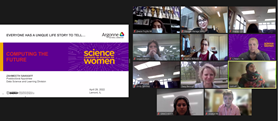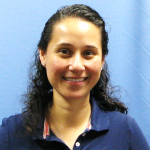July 2022 Edition
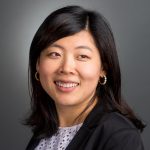 Lei Cheng, Chemist, MSD
Lei Cheng, Chemist, MSD
Growing up in China, Lei Cheng had hoped to travel and see the wide range of wonders throughout the country. By the time she was old enough to do it, she was an undergraduate chemistry major at Qingdao University. Money she might have spent traveling was earmarked for advancing her studies and pursuing professional dreams.
Cheng, today a chemist in Argonne’s materials science division and the focus area lead for JCESR, has been living and working in the United States for at least a dozen years. But, she still dreams of taking that trip.
“If I had a month to do whatever I wanted, I’d probably go to China to visit my family and travel,” she said. She spoke from a hotel room where she had quickly dialed in after a domestic flight and a rushed drive from the airport. When asked if she would take her two young daughters, ages two and six, along for the experience, she reflected that she’d probably go on her own.
“During family time, I really focus on quality and try not to think about work in order to reduce my stress,” said Cheng. “I take my responsibilities at this stage of their young lives very seriously, but it’s important that my daughters see that I have a life and that [women] can advance their professional careers at a lower intensity. We don’t give up.”
Cheng has always been drawn to chemistry, math and physics. They seemed “more real” to her than other subjects, and her curiosity and interest were encouraged and rewarded. Developing a career, she became involved in battery research at Argonne. The field has proven to be a satisfying way she can accomplish her personal goal: make meaningful, concrete contributions to society and improve how people live through the advances of chemistry.
“I am a research scientist developing materials for next generation batteries so I get to work with knowledgeable colleagues in a multidisciplinary team to advance technology,” she explained. “Collaborating and accomplishing big things is fun. I believe if you work on what interests you, you will persevere.”
Her advice to other women interested in pursuing careers in science and technology is to be open and proactive when interested in advancement.
“Too many times I hear people say, ‘I didn’t know she was interested,’” said Cheng. “Take the simple step of letting leadership know your career goals and ambitions.”
Due to the COVID-19 pandemic, Cheng has been unable for three years to travel internationally or see distant family. But, as restrictions lift, it’s likely Cheng will meet her goal sooner rather than later. She continues to try to work efficiently, set small goals, give each area of life its due, and know when to say no. With that approach, it’s easy to believe Cheng’s dream of exploring new parts of the world is just a matter of time.
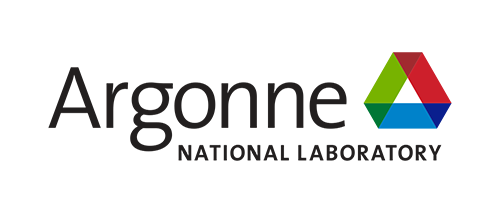
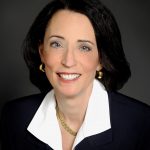 Susan Babinec, Project Lead, Stationary Storage, ACCESS
Susan Babinec, Project Lead, Stationary Storage, ACCESS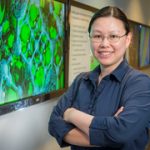

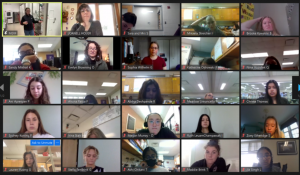 29th for more than 110 high-school girls across the Chicagoland area. The goal of SCSW is to inspire young women to pursue careers in science, bringing them virtually to Argonne for a day of lectures, tours, career booth exhibits, and mentoring.
29th for more than 110 high-school girls across the Chicagoland area. The goal of SCSW is to inspire young women to pursue careers in science, bringing them virtually to Argonne for a day of lectures, tours, career booth exhibits, and mentoring.